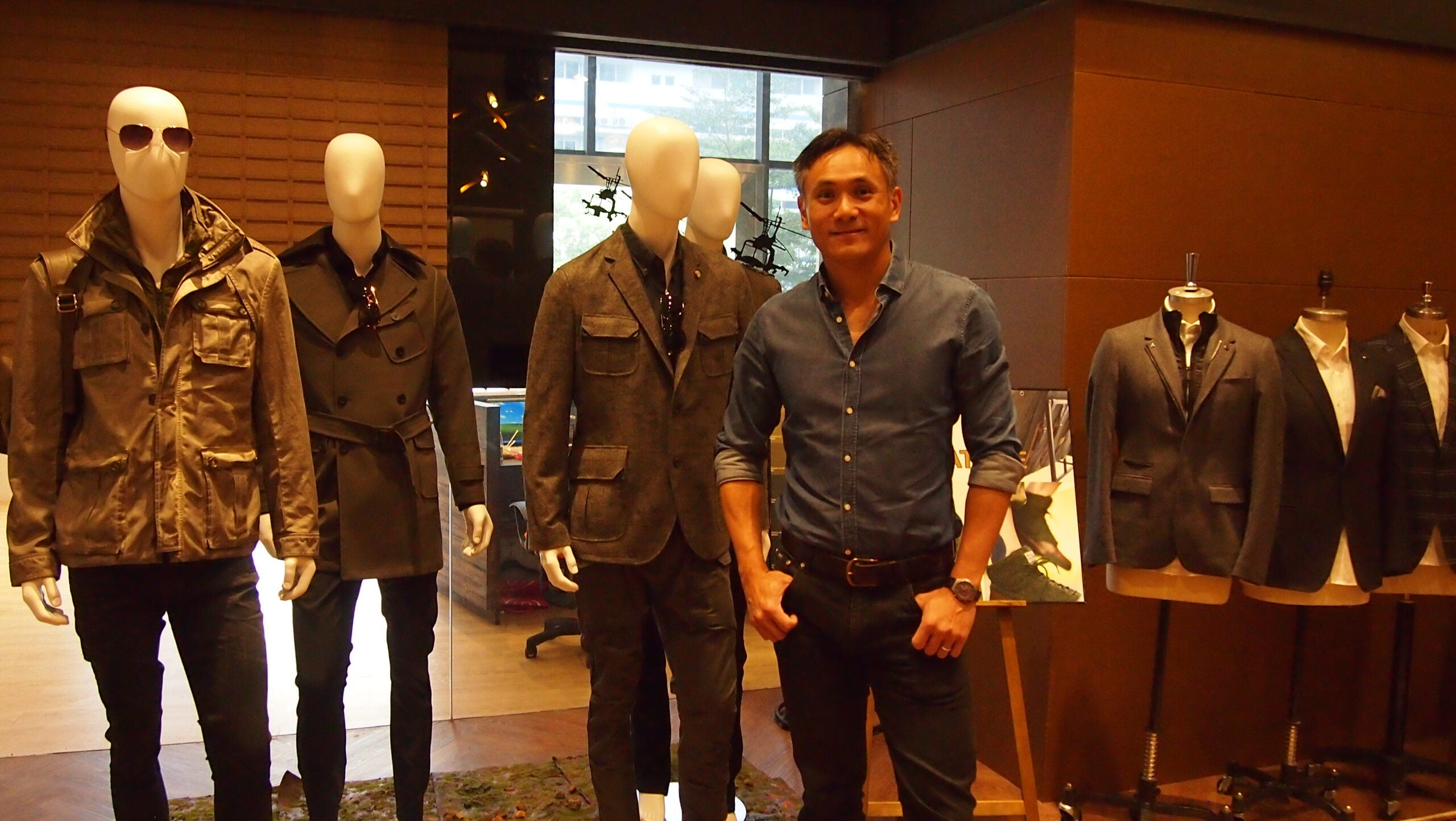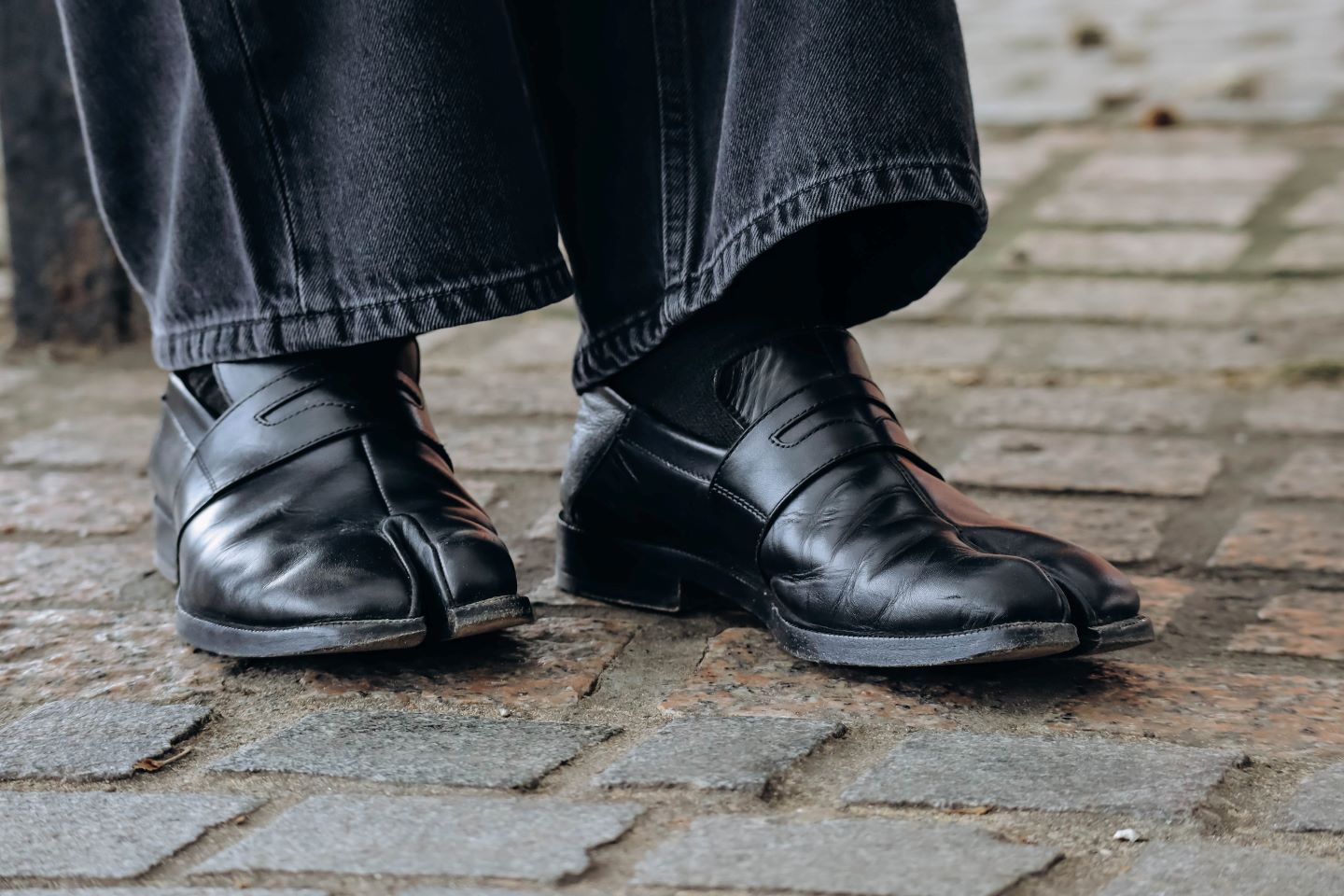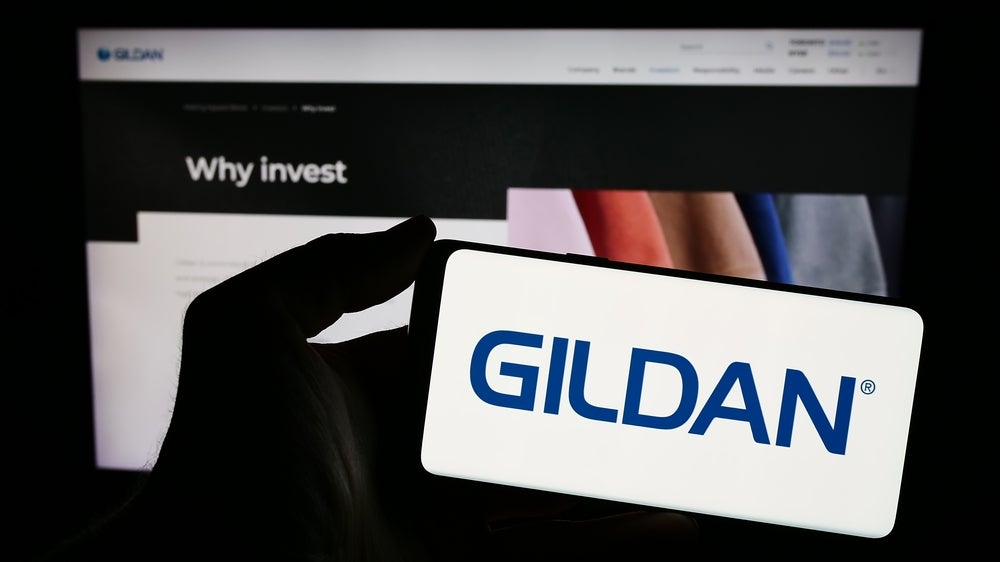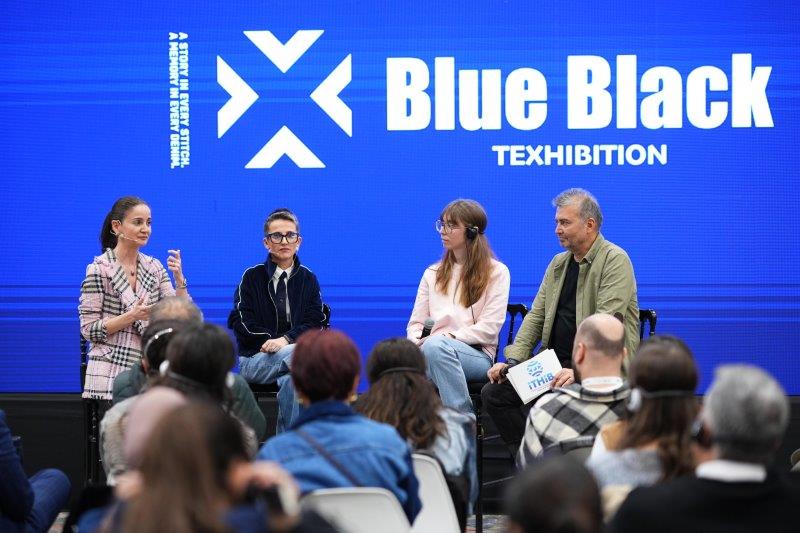
Apparel DECODED
Previous edition: 26 Mar 2024
Share article
Get the full version straight to your inbox.
Exclusive access to our best-in-class data & intelligence
Subscribe now
Lever Style's Szeto: ‘Versatility' is the secret behind 2023 profit surge
Lever Style executive chairman Stanley Szeto says remaining static in an ever-evolving fashion world is not the way forward and urges innovation and speedy reactions to demand fluctuations.

Lever Style is described as the “partner for the digital age” and it is this foundation that continues to see it succeed year after year, Szeto, proudly starts.
In fact, as we sit down to our conversation Lever Style’s stock has closed at an all-time high, its stock price almost tripling in two years. And in 2023, Lever Style, whose customers include Bonobos, Stitch Fix and Boden as well as Hugo Boss, All Saints and Paul Smith to name a few, booked a 7% increase in earnings to $15.5m.
It is a testament to the company’s ability to react quickly and remain versatile as, like many of its peers, it battles global supply disruptions and flagging consumer spend.
“I’d say we’re one of the better-performing apparel companies out there, especially when we look at the Hong Kong market and the listed comps,” he asserts. “We’ve had a track record of outperforming the industry for the last five years by double-digits.”
“What’s the secret?” I quiz.
“Versatility,” Szeto says confidently. “If you keep doing things the same old way, I think you’ll find it challenging. “Look, as long as people are wearing clothes, apparel will always be a viable industry. It’s how you do it. The more innovative you are the more competitive you are as a supply partner and there’s always room for growth. Nobody is coming even close to saturating the market.”
Adopting a digital-first state of mind
But he says in the last few years Lever Style has doubled down on its focus to reposition itself as relevant in the digital age where everything happens “very quickly”.
Szeto says with digital platforms like Amazon, Temu and Shein becoming more popular, it has become apparent they don’t work on a traditional apparel industry calendar.
“They just test the market and if there is consumer demand then they just chase and replenish rather than predicting what is going to sell well nine to 12 months down the road.
“I think that has forced a lot of brands and retailers to adopt a much quicker supply chain in order to catch up. And I think that is going to be the case more often, going forward.”
He acknowledges much of today’s retail world is omnichannel with a handful of digital-only companies but says in the digital world, things are just happening much faster.
“It’s much better to react to how well you’re selling than to predict what is going to happen in nine to 12 months’ time. We know from experience the traditional model results in inventory build-up, markdowns, write-offs. Being versatile pays off. We’ve seen that from Zara in the last 20 to 30 years. But a lot of the traditional brands and retailers haven’t really been able to change their models.”
In future, he believes brands will have no choice but to address this, particularly with the growth of ultra-fast fashion firms like Shein.
“Shein is basically Zara on steroids. Looking ahead there will be many more companies with quick response models that will be taking market share and the more traditional players will be forced to respond.”
That “inventory glut” he speaks of has impacted Lever Style in the last year, its sales falling 4% to $209m during the year as a result of the impact of brands working through their stockpile from the post-pandemic rush.
While retail sales held steady through 2023, the buying of apparel by brands and retailers slumped.
“Though the downward pressure from destocking is somewhat easing now, we’re facing a new challenge of softening consumer demand, which may also impact buying. We’re seeing the UK and Germany in recession and the US perhaps headed that way – that’s all going to have major impacts on the supply chain,” Szeto warns.
Naturally, for any business, this news is concerning. But Szeto says rather than wait for the inevitable to occur, Lever Style is altering its strategy to capture growth via M&A.
Capturing growth through M&A
It began in 2023 with the acquisition of outdoor apparel maker Elegant Team.
“We’ve had a history of growing organically during strong economic times. Outside of these times we grow through M&A. When times are tough, say the Covid period for example between mid-2020-21, we acquired five companies. The following two years we didn’t acquire any because there was strong organic growth to be had. Now we’re back in a turbulent period so are shifting our focus back to M&A”.
The company is always talking to potential M&A targets at any given time.
“We’re talking to multiple companies at present,” Szeto asserts. “But you know, it’s like dating versus getting married – it doesn’t mean every time you talk to someone, something will happen,” he jokes.
“But we look for companies that have great products, great clients, and possibly interesting production geographies. And we integrate them into ours and transform the businesses into our unique, asset-light, business model that allows us to be much more agile in serving customers.”
He points out that with Elegant Team, it produces in Bangladesh, a market Lever Style wasn’t present in before.
“So now, through this acquisition, we have a beachhead in Bangladesh and plan to expand on that. And you know, operationally it’s much easier to expand on something that’s already there than to start from scratch.”
How Szeto's Lever Style is expanding global reach
Lever Style has been fairly vocal about plans to focus on expansion in the developing world and reduce its presence in China. Szeto says the diversification from China has been in play for the last six to seven years with China being, among other things, one of the more costly places to produce from.
While the company returned to producing a little more in China during 2021, with a lot of places in Southeast Asia locked down due to Covid, he says the diversification since that time has accelerated.
“Our biggest production base is in Vietnam. And we’re trying to push more into places such as Indonesia, Cambodia and Bangladesh.
“We’re possibly looking into other markets if we successfully acquire a company that has production in those markets. They could be further away like Morocco, Türkiye, even Central America. But we don’t count the chickens until the eggs are hatched so we won’t count those yet.”
I wonder if all the noise around nearsourcing among US brands and retailers is concerning for Lever Style.
“There will always be a market for nearsourcing but capacity can be challenging. We don’t see the bulk of apparel production moving to the US or near the US for the foreseeable future. But you know, through M&A discussions, we’re also talking to companies with production in those places. So maybe we will be a beneficiary of nearsourcing if some of those deals happen.
Versatility key to Lever Style 2024 success
As we move into 2024, Lever Style’s strategy appears to be underpinned by the idea of “versatility”.
Szeto returns to the idea of Shein’s impressive business model and says it has shown how the fashion world is and needs to be changing.
“Shein has shown, as big as it is, its average order sizes are one to 300 units and you need a much more automated way of working in order to service those small units.”
To enable this, digitalisation and platformisation will continue to be a core focus for Lever Style.
The company introduced an automated fabric system, a CRM system and a centralised development model.
“These are just part of the first step. I think over the next two years there will be many projects that come to fruition. And you know, hopefully, we become much faster and more automated which means we can serve our clients faster as well with smaller order sizes.
“Versatility has always been our biggest strength. Whether it's product range, lead times, small order sizes, or country of origin – we’re more adaptive than our competitors and can cater to our clients’ changing needs. And I think that versatility is going to be even more important going forward. It has allowed us to outperform the industry.”
Latest news

Asos misses consumer expectations as H1 sales slump on continued slowdown
Industry onlookers believe Asos' product offering "struggles to measure up to the expectations of its target consumers" as the retailer posted an 18% decline in next sales for the first half (H1).

OTB Group acquires Italian shoe supplier Calzaturificio Stephen
OTB, the owner of fashion brands including Diesel, Jil Sander and Viktor&Rolf has announced the acquisition of shoemaker Calzaturificio Stephen.

New legislation curbs labour rights abuses in Mauritius apparel sector
The Mauritius apparel industry hopes new worker rights legislation will bring order to the recruitment of foreign labourers while protecting their rights.

Turtle Creek seeks urgent meeting amid Gildan's ‘desperate' proposed sale
Turtle Creek, which is a long-term shareholder of Canadian clothing company Gildan Activewear, wants an "urgent" annual meeting after the board initiated a sales process in an alleged "desperate attempt" to avoid being voted out by shareholders.

Money worries suppress apparel spend in 2024, sustainability takes back seat
Apparel spend is likely to be constrained through 2024 as consumers continue to focus their attention on experiences as concerns over inflation remain top of mind.

Remake shares 14-step roadmap for solving fashion accountability
Global advocacy organisation Remake has shared a 14-step roadmap to solving fashion accountability amid its latest Fashion Accountability report revealing an average score of 14/150 for the 52 fashion companies it assessed on a wide range of social, environmental and supply chain metrics.

SPESA two-part conference spotlights rise of AI, automation solutions
The SPESA Advanced in Manufacturing Technologies Conference scheduled for 11 April 2024 in California will explore the evolution within the fashion and sewn products industries focusing on automaton, advanced manufacturing and artificial intelligence (AI).

Texhibition Istanbul sees growth in visitor turnout in fifth edition
Texhibition Istanbul, the Fabric and Textile Accessories Fair, concluded its fifth edition from 6-8 March at the Istanbul Expo Centre with a 65% increase in international visitors from the EU, Great Britain, the US, North America, Asia, North Africa and the Middle East.
In our previous edition

Apparel Decoded
What can the apparel sector learn from the Renewcell bankruptcy?
25 Mar 2024

Apparel Decoded
Week in Data: Forced labour profits, Dick's Sporting Goods record sales
22 Mar 2024

Apparel Decoded
The greenwashing crackdown and how fashion brands can ensure compliance
21 Mar 2024
Newsletters in other sectors
Aerospace, Defence & Security
Banking & Payments
Insurance
Medical Devices
Oil & Gas
Travel and Tourism
Search companies, themes, reports, as well as actionable data & insights spanning 22 global industries
Access more premium companies when you subscribe to Explorer


